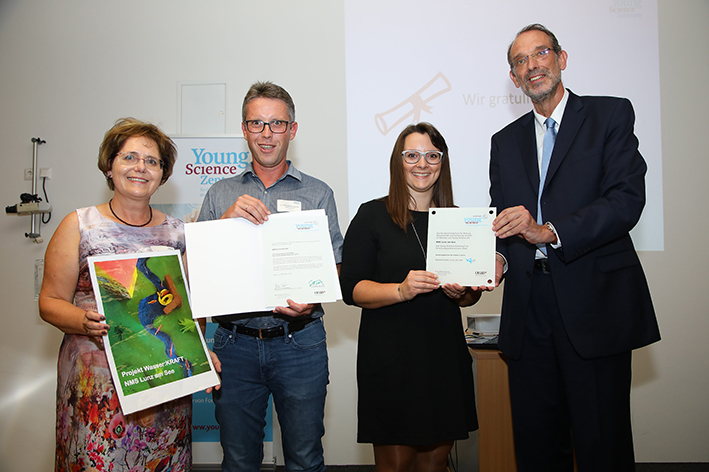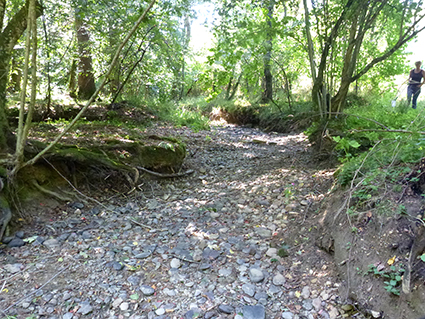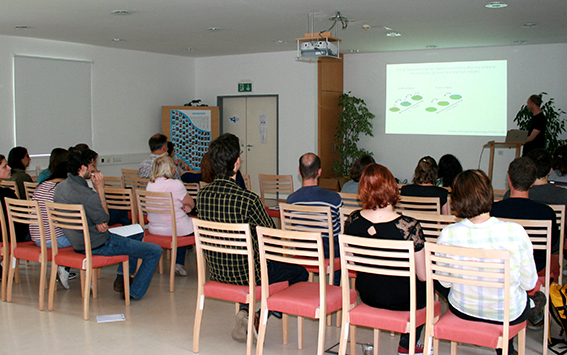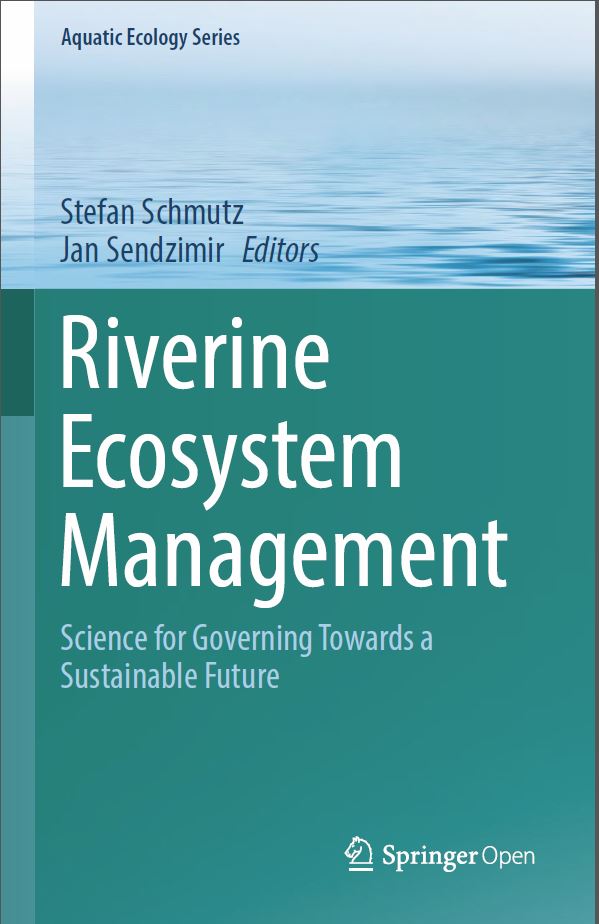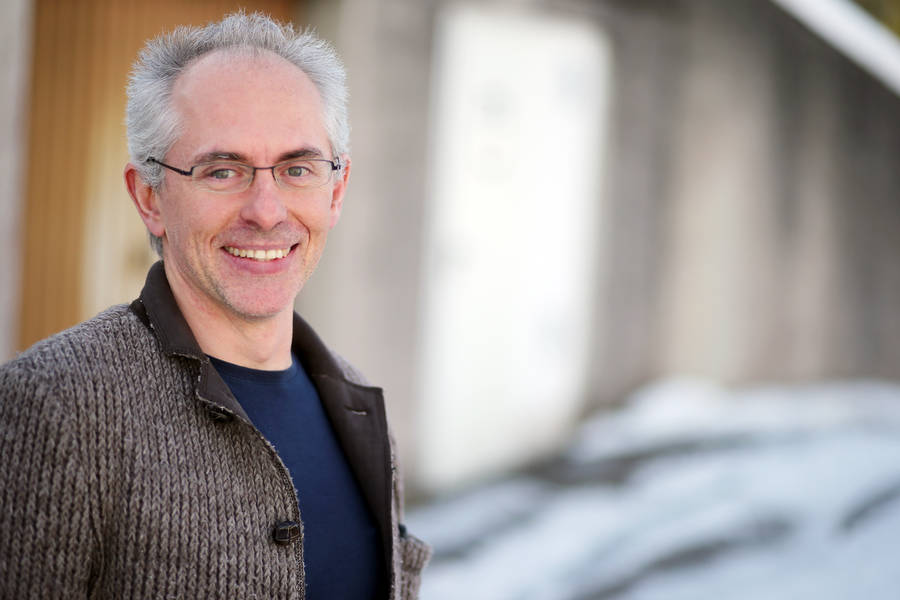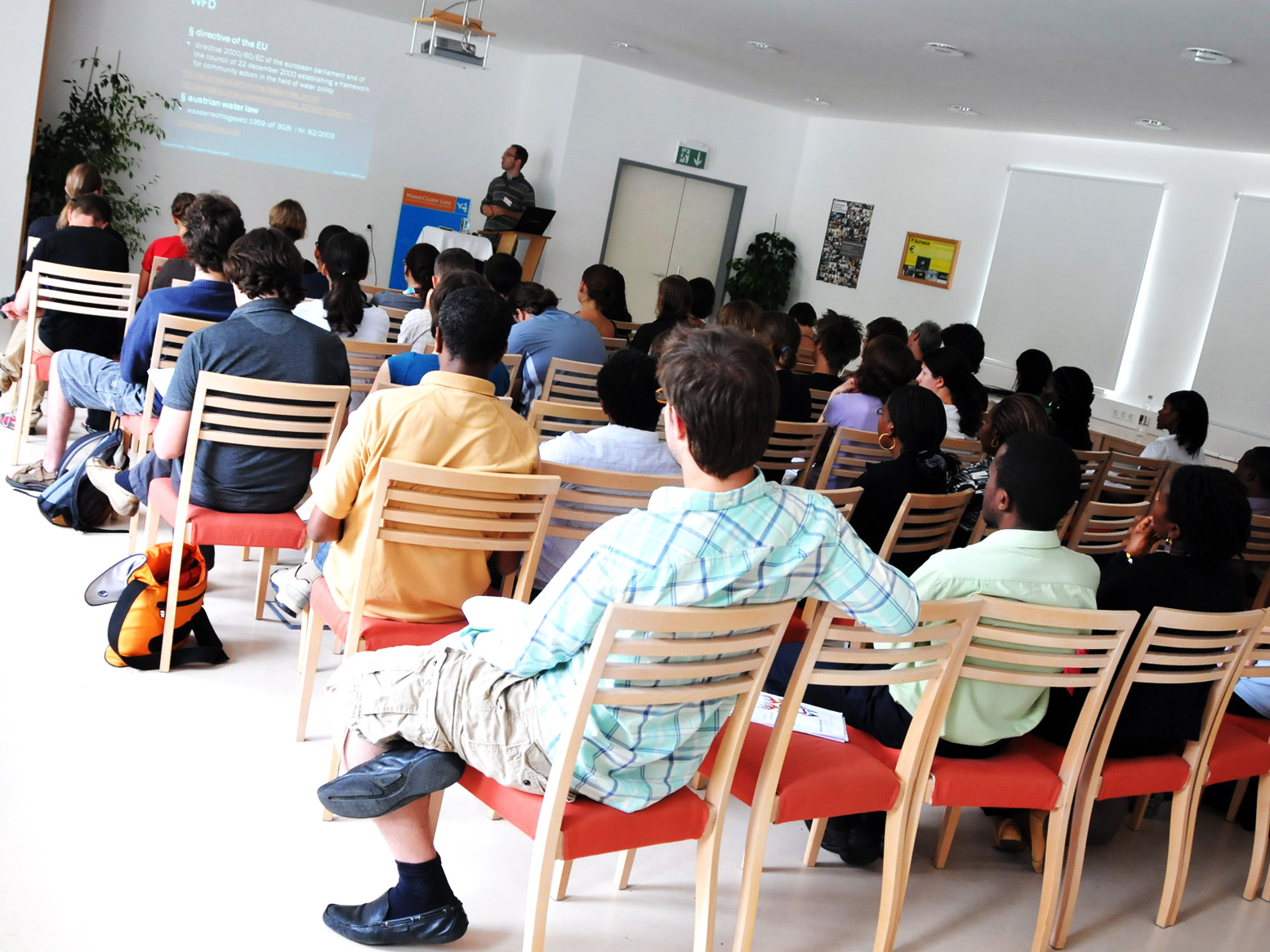On Wednesday, 19th September 2018, federal minister Univ.-Prof. Heinz Faßmann (BMBWF) awarded 20 schools with the Young Science Seal of Approval. NMS Lunz received this seal of approval for the outstanding work by the scientific project group and the regular cooperation with WasserCluster Lunz in the projects Wasser: KRAFT and Wasser schafft.
Congratulations!
(Foto: OeAD/APA-Fotoservice/Schedl)
Starting in August 2018, a new working group lead by Simon Vitecek will focus on aquatic insect diversity and entomology. This fifth working group with the name “QUIVER” will scrutinize regional and global patterns of insect biodiversity using classical taxonomic and molecular approaches.
More about the working group QUIVER
Foto: stonefly, Perla sp. (Copyright: Simon Vitacek)
Effects of desiccation on the self-purification capacity of headwater streams
In the project PURIFY we study how strong desiccation effects the self-purification capacity of headwater streams in Carinthia, Burgenland and Styria is and which importance the properties and condition of the stream-sediments have.
More information about this project you find here: http://www.wcl.ac.at/index.php/en/research/projects
(Foto: Desiccated river bed of the Glauningbach, made by Oliver Zweidick)
The second Workshop of the sTurn Team took place in April in Lunz. 12 researchers, lead by Z Horvath and R Ptacnik from WCL, study how processes at the landscape level control diversity of biological communities. In order to achieve a more holistic understanding, processes in time and space are studied in parallel. The project combines modeling with analysis of empirical data. In a special seminar organized during the workshop recent advances in metacommunity research were communicated with other scientists from WCL.
The book "Riverine Ecosystem Management - Science for Governing Towards a Sustainable Future" includes five chapters written by scientists from WasserCluster Lunz and is now available (open access) at: https://rd.springer.com/book/10.1007/978-3-319-73250-3
Learn more about the principal structures and functions of the biogeosphere of rivers. Identify key threats and effective solutions for restoration and mitigation.
Enjoy the reading!
On April 13th the Long Night of Research 2018 took place. WasserCluster Lunz gave at two infopoints a glance into the world of science and answerd the questions "The World of Plancton - what lives in one drop of water?" and "What's the favorite food of bacteria in streams?".
Fotos from the Event you find here.
from monday (26.3.2018) to friday (30.3.2018), from 8:55 to 9:00, there is the possibility to listen to the words from Thomas Hein about floating organism in water in the Ö1 broadcast „Vom Leben der Natur“.
Part 1: Depending on currents
Part 2: From micro to mega
Part 3: Variform in shape and color
Part 4: Eat or be eaten?
Part 5: The river as a habitat
More information: http://oe1.orf.at/vomlebendernatur
You want to know more about Wildnisgebiet and the Lunzer Lake?
On Thursday (15.3.2018) you have the possibility to meet two experts:
Reinhard Pekny:
Von der Eiszeit bis zum Wildnisgebiet - Vom Wert des „Ungenutzten“
and
Hannes Hager:
Der Lunzer See im Wandel der Zeit
When: Thursday, 15.03.2018 at 18:00
Where: at the WasserCluster Lunz – seminar room (Dr. Carl Kupelwieser Promenade 5)




